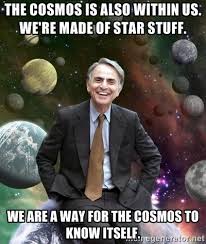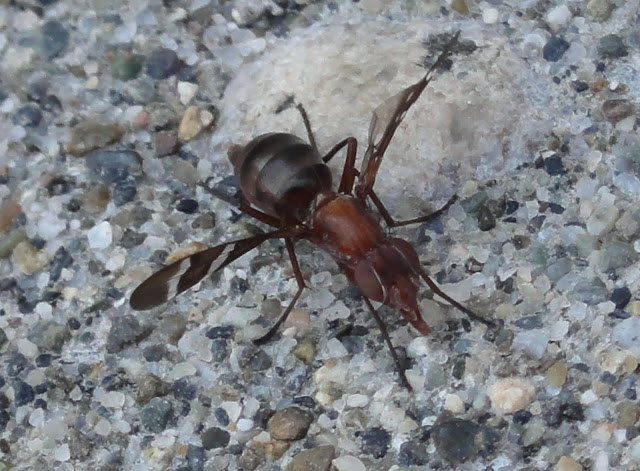This article was published in Scientific American’s former blog network and reflects the views of the author, not necessarily those of Scientific American
Something of a love-letter to science, from a version originally posted on En Tequila Es Verdad. Back-to-school time seems like a good time to remind everyone what a pleasure it is to know science stuff!
It's getting harder and harder for me to relate to those folks who choose to remain deliberately ignorant. The more I know, the more I want to know, and the more I enjoy the world. Well, the world aside from those fools who revel in their own ignorance, anyway. There was a time I subscribed to the inane belief that science deconstructed things, reduced everything down to meaningless component parts and took the mystery out of life. Well, back when I wanted elves to exist, I suppose that was true. Science is fatal to belief in elves, fairies, and those sorts of things. But that wasn't really the main problem.
Science the way it's taught in far too many American schools saps the life out of everything. Often because of standadized testing, sometimes because of teachers whose expertise is in fields other than science, instructors feed us rote fact and formula and pretend that's science. And some of us take their word for it. Some of us have decent schools, but are unfortunate enough to grow up with churches and religious sorts babbling inanity at us and calling it truth, all the while dismissing science as cold and mechanical and in no way spiritual. Some of us get screwed up from both sides. We end up with a bad taste in our mouths. (To be fair, in many schools, they do the same thing with Shakespeare, too.)
On supporting science journalism
If you're enjoying this article, consider supporting our award-winning journalism by subscribing. By purchasing a subscription you are helping to ensure the future of impactful stories about the discoveries and ideas shaping our world today.
That's really too bad, because none of it's true. Science isn't cold and impersonal and dry and dull. It doesn't suck the mystery out of life. Knowing how something works doesn't make it boring. Quite the contrary! Things are far more fascinating to me since I started studying science. Nothing seems like it's been torn down. Oh, well, maybe temporarily, while we reduce big bits to easier-to-understand-bits, but we don't leave the pieces lying around after. We put it all back together, and with this new understanding, the thing we're studying becomes far more fascinating than it was before. The truth is more complicated, far stranger, more wonderful than anything our paltry imaginations could come up with.
Astronomy's an obvious example. I once read a book on tides, and the fellow who wrote it lamented the fact that astronomy has revealed the stars to be nothing more than giant balls of gas burning away in outer space. He pined for the days when people thought the dark sky was a solid cover around the world, and stars were the light of heaven shining through little pinpricks.
The gentleman may know how tides work, but he obviously doesn't know jack diddly about how stars do, or he wouldn't be pining for the boring old light-o-heaven days. I feel perhaps I should sit down with him, bust out a book of photos from the Hubble space telescope, and start discussing the fact that we are made of star stuff. There is absolutely nothing boring about balls of gas burning away in outer space. Heaven is ho-hum compared to that.

Then, perhaps, I shall take him out digging in the dirt. Just ordinary dirt. Ordinary, that is, until you realize that every handful of soil is a thriving community of bacteria and fungi, microscopic (and maybe not-so-microscopic, depending on the handful) arthropods and nematode worms, without which all those lovely large plants we make such a fuss over would not exist. That's not even mentioning the minerals, other organic matter, and so forth.
There are more things in a gallon of seawater than are dreamt of in his philosophy.
The more I know, the less I take for granted. Oh, it's a humbling experience, and some people hate being humble, but if a person needs to strut, can't they at least take pride in the fact that human beings can comprehend this stuff? Seriously. When I look at the fact that we can trace, from physics through chemistry on to geology and biology, with plenty of other ologies along the way, how an animal works, it astonishes me. That's one heck of an accomplishment. We deserve a pat on the back for it. And then it's time to show some humility in the face of the complexity of even very simple things. We don't yet understand the interrelationships between geology, ecology and biology in minute detail, although we're getting better about comprehending some of the details. Thing is, it makes me appreciate even the least of creatures and most humble of rocks when I realize that the little nobodies of the animal kingdom and the dullest landscapes play starring roles in nature's show. Even the mosquitoes that torment me in the summer months bother me less - I know they're evil little disease vectors, and they certainly cause no end of itchy misery even when they're not carrying something potentially lethal, but they're also feeding a lot of the wildlife I love so much. Besides, through the miracle of modern science, they likely won't kill me, so I can live with them. And they have a bizarre beauty of their own.
I was sitting on some steps at the visitor's center at Hurricane Ridge one summer, and saw a flying critter. Before I started studying biology, before I started really looking at such things, I would've freaked out. "Ew, stinging flying insect getitaway!" squish once would have been my response. Instead, I brought my camera to bear:

Look at how lovely he is! Or possibly she. I'm not even sure what it is, but someday I'll know. I might even learn why its wings have such pretty stripes, and why it's that rich mahogany color. But I do know that it's an arthropod, one of the most successful species on earth; that its compound eyes see the world in a much different way from ours; and that it's a fellow creature with a place and a purpose in the local ecology. We got on famously. It posed for a bit, then wandered off into the tall grass without bothering me in the least. And because of science, I saw beauty in the world I never would have suspected existed.
This little critter evolved, and has a story to tell. So does every other critter, and the plants the critters live among, and the rocks they lounge on, and the dirt everything's buried in. And some people want to tell me science sucks the wonder out of life? Seriously? Seeing the world through compound eyes - how can anyone say that's not wonderful?
Science, that process of discovery that reveals real and true things about life, the universe, and everything, makes life much more than an exercise in waiting for something more interesting to happen.
Goethe once wrote, "He who cannot draw on three thousand years of history is living from hand to mouth." Well, he actually wrote, "He who does not know how to give himself an account of three thousand years may remain in the dark, inexperienced, and live from day to day," but close enough. Three thousand years is a mere eyeblink when we're looking through deep time, though. How about four and a half billion years? What about the age of the cosmos? Now, that's history. Rather makes Goethe's three thousand years look like living paycheck-to-paycheck, don't it just?
The world without science is an impoverished place. It's just a shame so many folks never realize what a wealth of knowledge awaits them. You don't have to live like that. Dare to know. The whole cosmos is yours.
